No Results Found
The page you requested could not be found. Try refining your search, or use the navigation above to locate the post.
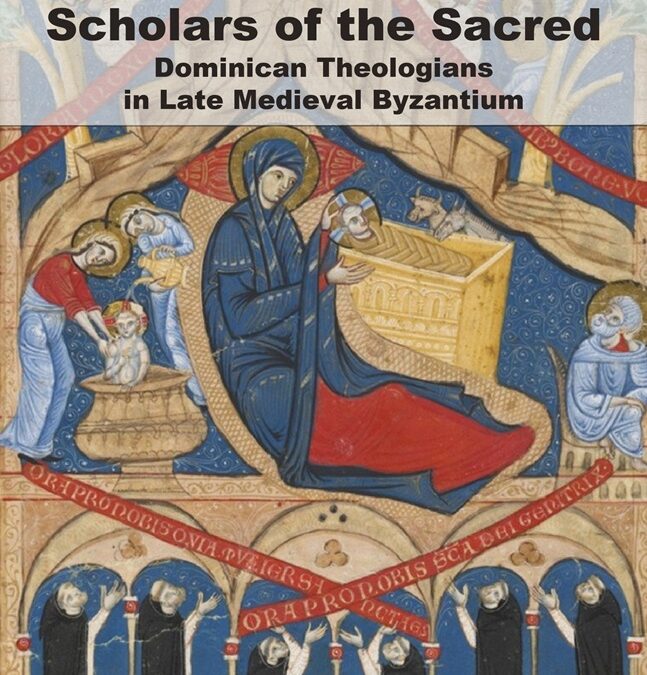
This in-depth study of the Catholic–Orthodox reunion efforts during the tumultuous 11th–15th centuries reveals the vital role played by the Dominican Order in shaping the theological and political discourse of that era, with a focus on the contributions of prominent Dominican figures such as John Stojkovich of Ragusa, Andrew Chrysoberges, Manuel Calecas, Demetrios Cydones, Thomas Aquinas and many others who played a critical role in the events leading to the Council of Florence.
Paperback: $14.95 | Kindle: $9.99
“James Likoudis makes here a welcome contribution to the great ecumenical effort, reminding us of both the complicated and nuanced history of the Great Schism and of the many dedicated ‘moderate and noble spirits who desired an end to all schismatic activity and sought the purification of memories to prepare for a ‘dialogue of charity” which would restore the unity of Greek East and Latin West in common communion, particularly those of the Order of Preachers and their primary Orthodox interlocutors, whose contributions to the unity efforts of the early second Christian millennium ought not be underestimated. Likoudis reminds us that fidelity to Christ and his Church is also always fidelity to dialogue and reconciliation with our brothers and sisters in Christ.” —A.J. Boyd, STL, Instructor of Theology and Ecumenism, Institute of Pastoral Studies, Loyola University, Chicago
“The cause of durable ecclesial union requires a fair and informed hearing of those Catholic authors who have historically concerned themselves with the theological and jurisdictional issues surrounding such reunion. Although Thomism is not the Catholic Church’s sole philosophical or theological spokesperson, it surely represents her most important theological school. Therefore, it is to be hoped that Likoudis’s text might serve as an introduction to the important task of listening to classic Thomist readings of Orthodox thought.” —Matthew K. Minerd, PhD, Professor of Philosophy and Moral Theology, Byzantine Catholic Seminary of Ss. Cyril and Methodius, Pittsburgh, Pennsylvania, U.S.A.
“Scholars of the Sacred collects Likoudis’ writings on Dominican contributions to the cause of unity between the eastern and western churches before the Council of Florence. The essays are useful as reminders of a neglected history and as studies in sacred doctrine, but more than once they also remind the reader that the unity of the Church is a supernatural reality of mind and heart—and one that suffers gravely when we begin to disdain or defy the successor of St Peter, the Church’s earthly guardian of unity.” —Fr. Bernard Mulcahy, O.P., Ph.D., Associate Professor of Theology, Pontifical College Josephinum, Columbus, Ohio, U.S.A.
“This is a privileged peek into work that goes on unceasingly behind the scenes—a work of diligent charity and uncompromising scholarship, all in the service of the unity Christ desires. It is a work that yields no earthly glory. Readers will find very few familiar names here. While the protagonists of this story patiently make history, histories rarely take note of them. Thanks to James Likoudis for, at last, giving the credit and the glory where they’re due.” —Mike Aquilina, general editor, Reclaiming Catholic History Series
“Dr. Likoudis’s book is a must-read for anyone interested in the Catholic Church’s history. He offers a concise and insightful description of the work of often unheralded Dominican scholars’ efforts to effect unity within the Catholic Church in the late Medieval Byzantium period.” —James Pomeroy, author of Living as Long as I Can as well as I Can
The page you requested could not be found. Try refining your search, or use the navigation above to locate the post.
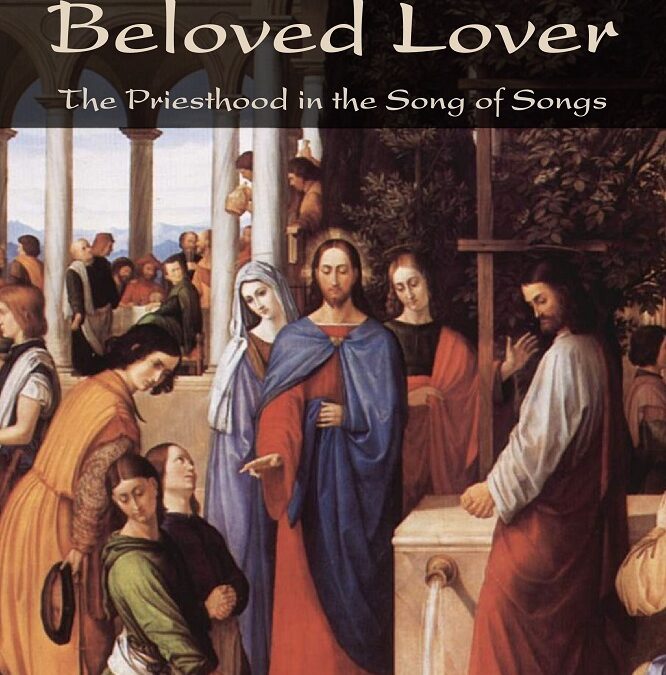
In the context of the mystical love poetry of the Song of Songs, Beloved Lover explores how the priest is the living image of Jesus Christ, the Spouse of the Church. The priest is called to spiritually live the spousal love of Christ toward the Church, his bride. The priest is empowered to love others with an ardor that is fresh, magnanimous, and vibrant because his life emanates this spousal nature as an example of Christ’s spousal love. The intriguing imagery of the Song of Songs demonstrates how the priest glows with the beauty of Christ, the Bridegroom, and perfects the beauty of Christ’s bride, the Church. Lay men and women will gain insight into the life and spirituality of the priest and be inspired to live their own priesthood of the faithful more fervently.
Paperback: $24.95 | Kindle: $9.99
“This book will refresh your heart. Beloved Lover inspires the reader to renew and deepen their relationship with Christ as the Bridegroom. Fr. Greg Cleveland invites his audience to engage Christ’s spousal love as he reflects on the Song of Songs, while weaving Scripture passages, quotes from the saints, and stories that illustrate God’s relentless love. Clergy will find insights for their personal prayer as Christ’s beloved, which will empower them to represent Jesus Christ more effectively in ministry. In fact, Beloved Lover offers every disciple an instructive theology with a beautiful narrative that invites us to embrace Christ’s love and to live more intentionally as a ‘beloved lover’ in the world.” – Most Rev. Steven Biegler, Bishop of Cheyenne
“Fr. Cleveland does a masterful job of presenting a rich source of insights on the Catholic priesthood. He draws heavily on Scripture and Catholic resources to present the priesthood as a ministry of love, done in the love of Christ. Hence, the framing of the work using the words of the Old Testament Song of Songs, where God the lover originally pursues his people, Israel. Now the priest in Jesus Christ continues God’s pursuit of the whole of humanity.” – Fr. Bevil Bramwell, OMI, PhD, author of Handbook for Catholic Religious
“Priests will have their own commitment to contemplative prayer deepened in the reading of this book. Christ the Bridegroom will gift them with a renewed sense of spousal sacrifice, the very spousal gift every priest desired to offer on their ordination day. Christ the Bridegroom is both loving the soul of the priest and in turn enables the priest’s own love and sacrifice to be offered to his parishioners.” – Dcn James Keating, Professor of Spiritual Theology, Kenrick-Glennon Seminary, St Louis, MO
“In Beloved Lover, Fr. Greg Cleveland uses the Song of Songs to firmly orient the priesthood as the expression of Christ the Bridegroom’s sacrificial love in the world. Although priests will appreciate the honest discussion about the many demands they routinely face in parish life, the book goes further, offering them a template for transforming the quotidian through a renewed sense of spousal sacrifice. At the center of this transformation is contemplative prayer. Readers of the book, both priests and laypeople, are invited to engage more deeply with their prayer life, resulting in a greater desire to experience Christ’s sacrificial love in and through the priesthood. A beautiful exploration of how profoundly and passionately each of us is loved.” – Elizabeth Valeri, MA, Freelance Editor
“This beautifully written book is a gift to Catholic priests for its inspiration and support and will help lay readers to grow in love and appreciation for priests’ ministry. It is profound and extensive in the theology that it presents, yet easily readable. With the romance of God’s love from the Song of Songs as his template, Father Greg blends a fresh and loving perspective from his own vocation as priest and spiritual director with sound practical teaching, stories, and citations. Every seminarian and new priest should have this book, and an experienced priest who reads it will recognize much that will confirm and reinvigorate God’s call. For the rest of us, it is truly valuable spiritual reading.” – John Linden, Musician and IT Network Engineer
Fr. Gregory Cleveland, OMV is a priest with the Oblates of the Virgin Mary and author of several books. Ordained in 1995, he has served as Associate Pastor, Novice Master, Seminary Rector, and Director of an Ignatian Spirituality Center. He is currently a Retreat Master in Venice, FL.
The page you requested could not be found. Try refining your search, or use the navigation above to locate the post.
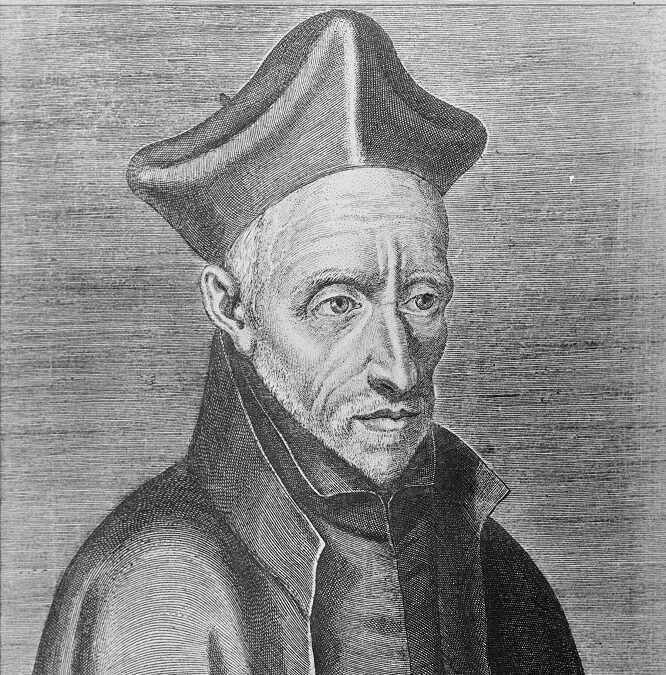
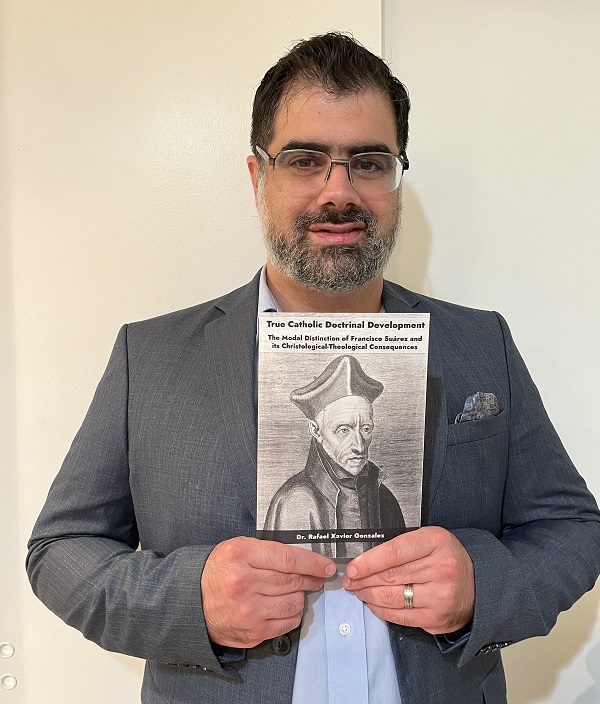
In this book, Dr. Rafael Gonzalez discusses Suárez’ modal distinction, which seems to satisfy both medieval Thomism (and neo-Thomism) and the newer pejoratively called “la nouvelle théologie” in their views of the distinction between nature and supernature, philosophy and theology. In other words, the traditional Scholastic theology and the more contemporary Ressourcement theology are synthesized by Suárezian modes, which emerges from the synthesis that is Christ himself.
Paperback: $19.95 | Kindle: $9.99
“In his book entitled Truth and Tolerance, Pope Benedict XVI writes, ‘Without faith, philosophy cannot be whole, but faith without reason cannot be human.’ The throughline that permeates Dr. Rafael Gonzalez’s brilliant exposition of the modal metaphysics of Francisco Suárez is precisely this Catholic insistence that doing philosophy clarifies and deepens our faith, thereby moving us closer to God—knowledge leads to love. Dr. Gonzalez convincingly argues that Suárez’s modal metaphysics is ideally suited for organically developing the central Catholic doctrine that Christ is fully human and fully divine, and that in and through this Christological synthesis, we are not destroyed but rather divinized. With this book, Dr. Gonzalez introduces the English-speaking world to a seminal figure who can help Catholics avoid the heretical beliefs of modernity and post-modernity that arise when we insist on either/or thinking over the both/and synthesis that characterizes Catholic faith.” – Martin O. Yalcin, PhD, Theology Department, Paramus Catholic High School
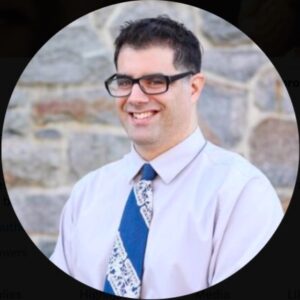 Rafael Xavier Gonzalez studied Theology, Philosophy, Latin and Greek in two seminaries, one in Spain and another in Peru, specializing in Thomism, Suárism, and Molinism. He has lectured at varied parishes and centers on approved Marian apparitions. Rafael is also a veteran of the Iraq war. He is currently a teacher in a classic liberal arts high school and an adjunct professor of philosophy.
Rafael Xavier Gonzalez studied Theology, Philosophy, Latin and Greek in two seminaries, one in Spain and another in Peru, specializing in Thomism, Suárism, and Molinism. He has lectured at varied parishes and centers on approved Marian apparitions. Rafael is also a veteran of the Iraq war. He is currently a teacher in a classic liberal arts high school and an adjunct professor of philosophy.The page you requested could not be found. Try refining your search, or use the navigation above to locate the post.

The social encyclicals of the Catholic Church provide an opportunity to treat human behavior from a practical moral philosophical point of view grounded in Aristotle as interpreted by Saint Thomas Aquinas. Because any attempt to remedy the social disorder by the efforts of reason alone will not only fail but will also result in a worse condition even for the oppressed, the author acknowledges that Christ and his Church have the true and only answer. The social encyclicals are intended, after all, to shift our focus from the philosophical (natural) to the theological (supernatural) level of human life and association, restoring the relationship between the two orders of Faith and Reason. This book was written to explain the philosophical foundation of that relationship, which modernity has threatened, in the hope that it will help heal the widening breach.
Paperback: $29.95 | Kindle: $9.99
“Dr Don Boland has given a most thorough and well-organised exposition and discussion of the Social Doctrine of the Church and the place of justice therein. His study starts with Pope Leo XIII and finishes with Pope Francis. The number and quality of his papal quotations (often providing his own translations of the original Latin to correct bad official English translations) is a true work of service in its own right. He brings to bear on his discussion of these texts the moral philosophical teaching of St Thomas Aquinas. Readers will soon see that much of the Social Doctrine of the Church is thoroughly grounded in Aquinas from the perspective of human reason alone. Modern day social, political, ethical and theological education in Catholic Institutions would benefit substantially from the philosophical exposition and wisdom that Dr Boland has provided in abundance. I wholeheartedly recommend this book.” – Frank Calneggia, author of Assertions and Refutations: An Assessment of Dr Tracey Rowland’s Natural Law: From Neo Thomism to Nuptial Mysticism
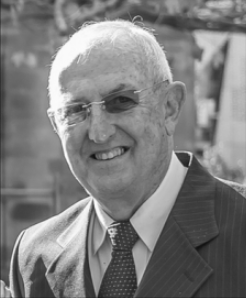
Donald G Boland Ll. B. Ph. D. is a founding member of the Centre for Catholic Studies Inc. in Sydney Australia and is one of its former Presidents. He practiced for a number of years as a lawyer having a degree in law from the University of Sydney. Over much the same time, having obtained a doctorate in philosophy from the University of St. Thomas in Rome, he has taught philosophy and law in both Catholic and secular educational institutions, such as the University of Technology, Sydney, the University of Newcastle, the Aquinas Academy, the Centre for Thomistic Studies Inc., now operating under the name of the Centre for Catholic Studies Inc., and various Catholic seminaries, such as those of the Marists and the Vincentians. His doctoral thesis was on the concepts of utility and value in economics as found in the works of Aristotle and St. Thomas Aquinas.
The page you requested could not be found. Try refining your search, or use the navigation above to locate the post.
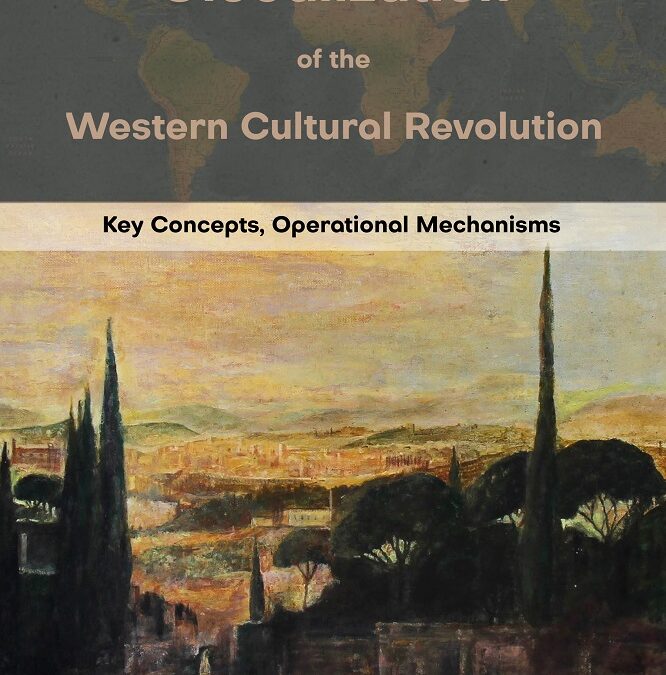
A new ethic, secularist in its radical aspects, has spread like wildfire all over the world since the end of the cold war. This ethic is the fruit of the Western feminist, sexual and cultural revolutions and of the long march of the West towards post-modernity. In the West, the revolution is achieving its chief objectives and even seems to have reached the point of self-destruction. But for a generation, the battle line has moved to the non-Western world. This manual aims to provide educators with the information they need to acquire, in the light of the eternal law written by God himself in the heart of all men and women, the knowledge and the discernment of the key concepts and operational mechanisms of the globalization of the western cultural revolution. It also seeks to encourage our friends in the non-Western world to be faithful to who they are and, by remaining themselves, to offer the world a leadership that is specific to them and that is already awaited by all those who wish to go back to reality, truth and love.
Paperback: $19.95 | Kindle: $9.99
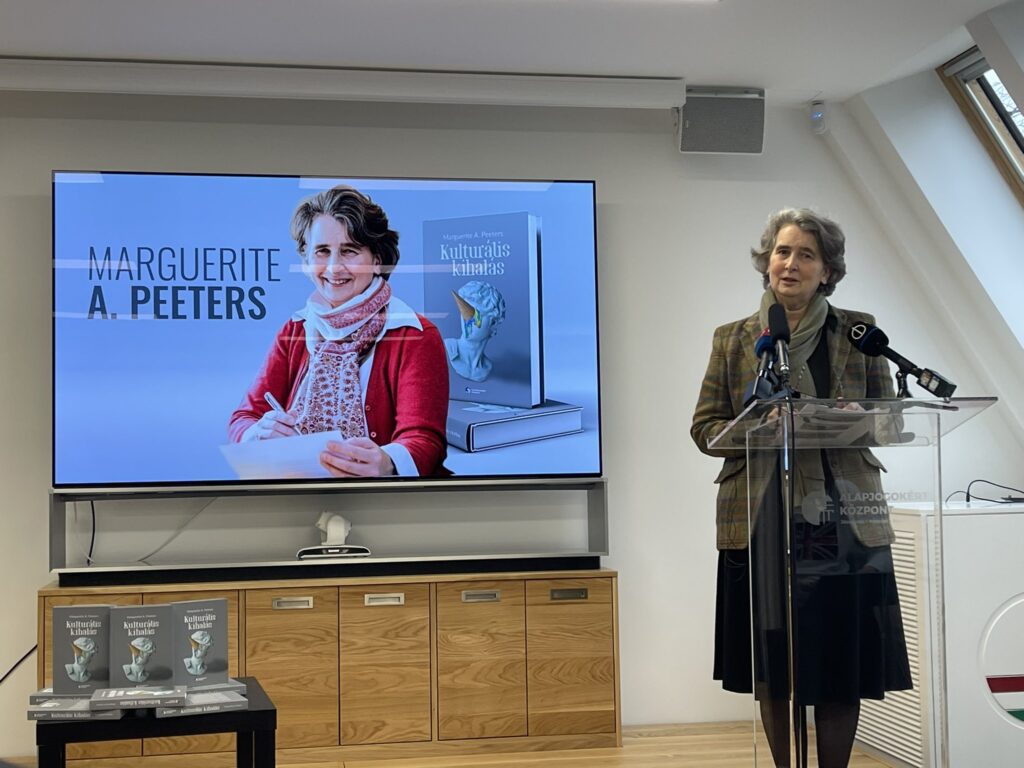
Photo by The European Conservative during book launch in Hungary, January 26, 2023
Dr. Ted Baehr, Founder and Publisher of Movie Guide. The full review page may be found here.
The Globalization of the Western Cultural Revolution is the most compelling, important, profound, readable analysis of the destructive influence of postmodernism on the world at large. Postmodernism is a loose term applied to a group of left-wing theories attacking conventional notions of reality and social structures. Author Marguerite A. Peeters does an incredible job of helping the reader understand the roots of postmodernism, the impact of postmodernism, the players in the postmodern revolution, and the social devastation it’s caused. First, she details the influence of feminists like Margaret Sanger and Simone de Beauvoir, the fraud of Alfred Kinsey and his new science of “sexology”, and the Cultural Marxism of Herbert Marcuse in a fruitful, compelling way. Having studied most of these influences for years, I was surprised to find myself educated in a way that could produce a zeal for reclaiming the territory post-modernism has taken. If you want to know why governments have been powerless to stop post-modernism, this is the book. If you want to know how post-modernism undermined religion, this is the book. If you want to understand the destruction of democracy and capitalism by post-modernism, this is the book. The Globalization of the Western Cultural Revolution shows the dictatorship of the post-modern groups as they work within the United Nations, NGOs (or non-governmental organizations), and governing bodies in society to refute the Good, the True, and the Beautiful. If there’s one book that you read, The Globalization of the Western Cultural Revolution is the book. The Globalization of the Western Cultural Revolution is highly recommended.


The page you requested could not be found. Try refining your search, or use the navigation above to locate the post.
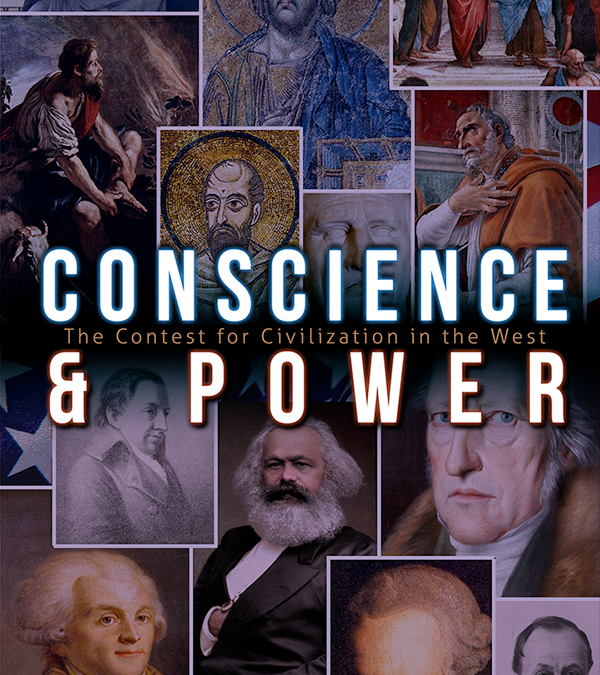
Conscience and Power examines how civilization in “the West” arose after the fall of the Roman Empire and has grappled ever after with a desire of citizens of nations of Western civilization for justice and the necessities of political order. This contest between Western man’s sense of justice and the rule of nation states has had consequences for democracy in America and in the centers of Western Europe, and the reason is that Roman religion was replaced by a new truth of social order–the order of Christendom. Consciousness of that new Christian faith defined a new era, from the 5th century to the 14th century, which historians call “First Europe,” during which period Christian monastics and theologians celebrated faith in Christ and replaced the old order with a new tradition. Their “conscience” contested with monarchs who resisted their claim to dominance and gave us insight into the truths of Christendom. What we in the West inherited from ancient Israel, the ancient Greeks and Romans and an enduring Christendom formed during the Middle Ages, however, is no longer central to the lives of citizens of Western nation states. Because the death of everything living is preceded by a natural process of birth, growth and senescence, death is an end point for all “being things.” Conscience and Power asks, therefore, how much longer can democracies in the West live before they, too, meet their end?
Paperback: $19.95 | Kindle $9.99
“One of the most significant books of our age.” –Dr. Sebastian Mahfood, OP

Richard J. Bishirjian was Founding President and Professor of Government at Yorktown University from 2000-2016. He earned a B.A. from the University of Pittsburgh and a Ph.D. in Government and International Studies from the University of Notre Dame.
Dr. Bishirjian was Gerhart Niemeyer’s teaching assistant at Notre Dame. He was an assistant professor in the Department of Politics at the University of Dallas in Texas, chairman of the Political Science Department at the College of New Rochelle in New York and founder of Yorktown University where he served as President and Professor of government from 2000-2016.
He served as a political appointee in the Reagan Administration and in the Administration of George H. W. Bush.
He is the editor of A Public Philosophy Reader and author of three books, The Development of Political Theory, The Conservative Rebellion and The Coming Death and Future Resurrection of American Higher Education. His most recent work, “Coda,” is a novel published by En Route Books. His most recent three scholarly studies are Ennobling Encounters, Rise and Fall of the American Empire, and Conscience and Power. Ennobling Encounters was published by En Route Books in September, 2021.
Dr. Bishirjian’s essays have been published in Forbes, The Political Science Reviewer, Modern Age, Review of Politics, Chronicles, the American Spectator and The Imaginative Conservative.
For the full story, see Dick’s website.
The page you requested could not be found. Try refining your search, or use the navigation above to locate the post.